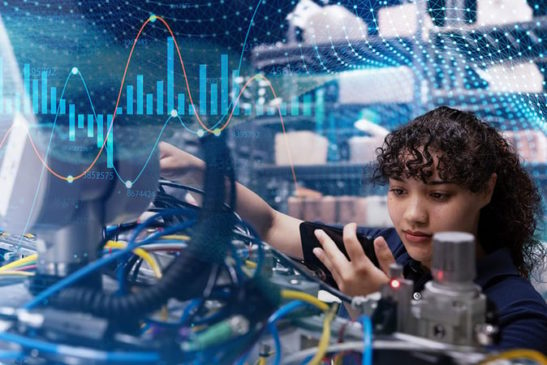As part of their collaboration, the companies plan to launch AI-powered copilots for industries such as manufacturing, infrastructure, transportation, and healthcare.
German technology company Siemens AG has partnered with Microsoft Corporation (NASDAQ: MSFT) to introduce Siemens Industrial Copilot, a generative artificial intelligence (AI)-powered assistant. The AI assistant is designed to enhance human-machine collaboration and boost productivity in manufacturing. The companies will continue to work together to create AI copilots for use across the manufacturing, infrastructure, transportation, and healthcare industries.
“Together with Microsoft, our shared vision is to empower customers with the adoption of generative AI,” says Roland Busch, CEO of Siemens AG. “This has the potential to revolutionize the way companies design, develop, manufacture, and operate. Making human-machine collaboration more widely available allows engineers to accelerate code development, increase innovation, and tackle skilled labor shortages.”
Promoting Human-Machine Collaboration
According to a Tuesday announcement, Siemens Industrial Copilot will enable users in industrial sectors to generate, optimize, and debug complex automation code in record time. The tool will also significantly reduce simulation time, performing tasks that previously took weeks within minutes. Maintenance staff will be able to get detailed repair instructions while engineers will have quick access to simulation tools.
Siemens Industrial Copilot inputs automation and process information from Siemens’ open digital business platform, Siemens Xcelerator, and enhances it with Microsoft’s Azure OpenAI Service. The companies went on to assure users that they would maintain full control over their data as it would not be used to train the copilot’s underlying AI models.
Multi-Industry Copilots and Virtual Collaboration Coming Soon
As part of their collaboration, the companies plan to launch AI-powered copilots for industries such as manufacturing, infrastructure, transportation, and healthcare. In the manufacturing industry in particular, copilots are already planned for sectors like automotive, consumer package goods, and machine building.
German automotive manufacturer Schaeffler AG is an early adopter of AI technology and has been using it to generate reliable code for programming industrial automation systems like robots. The company plans to use Siemens Industrial Copilot in its operations to reduce downtimes and for its clients in the future.
Schaeffler Group CEO Klaus Rosenfeld commented:
“With this joint pilot, we’re stepping into a new age of productivity and innovation. This Siemens Industrial Copilot will help our team work more efficiently, reduce repetitive tasks, and unleash creativity. We’re excited to partner with Siemens and Microsoft on this project.”
Microsoft has also revealed that Teamcenter for Microsoft Teams will be generally available beginning December 2023. The new app harnesses the power of AI to enhance virtual collaboration across teams in product design and manufacturing. It connects Siemens’ Teamcenter software for product lifecycle management with Microsoft’s Teams platform to make data more accessible for factory and field service workers.
Mercy Mutanya is a Tech enthusiast, Digital Marketer, Writer and IT Business Management Student.
She enjoys reading, writing, doing crosswords and binge-watching her favourite TV series.



